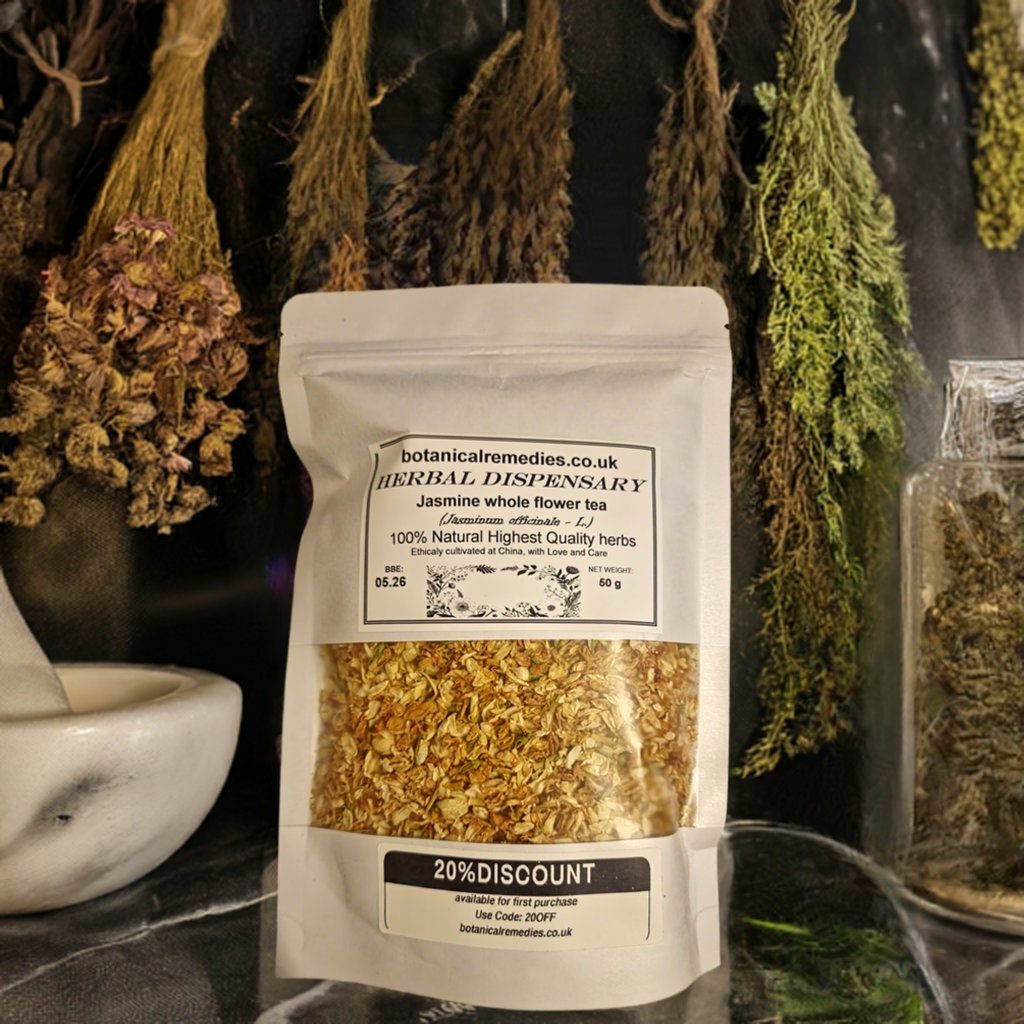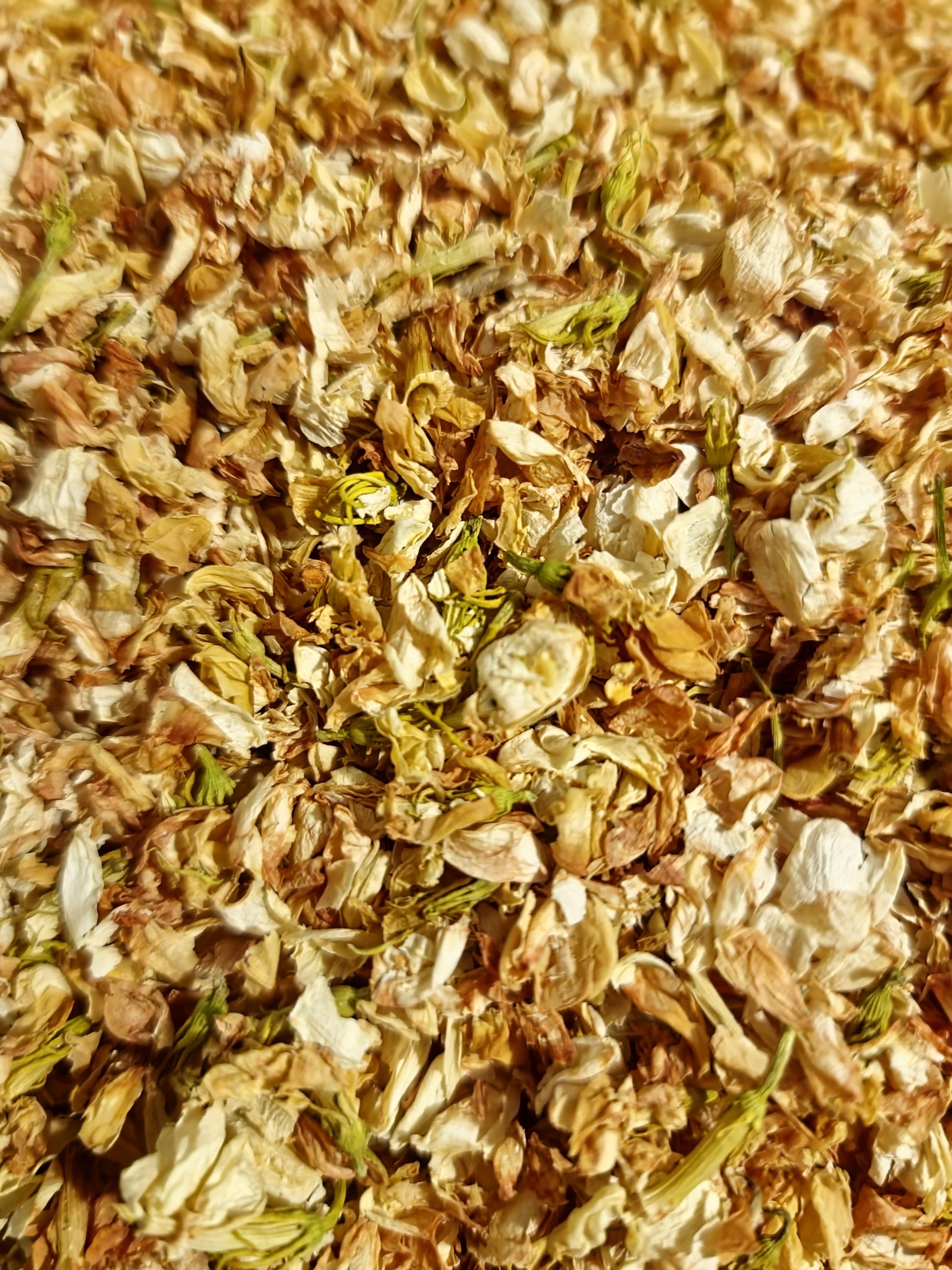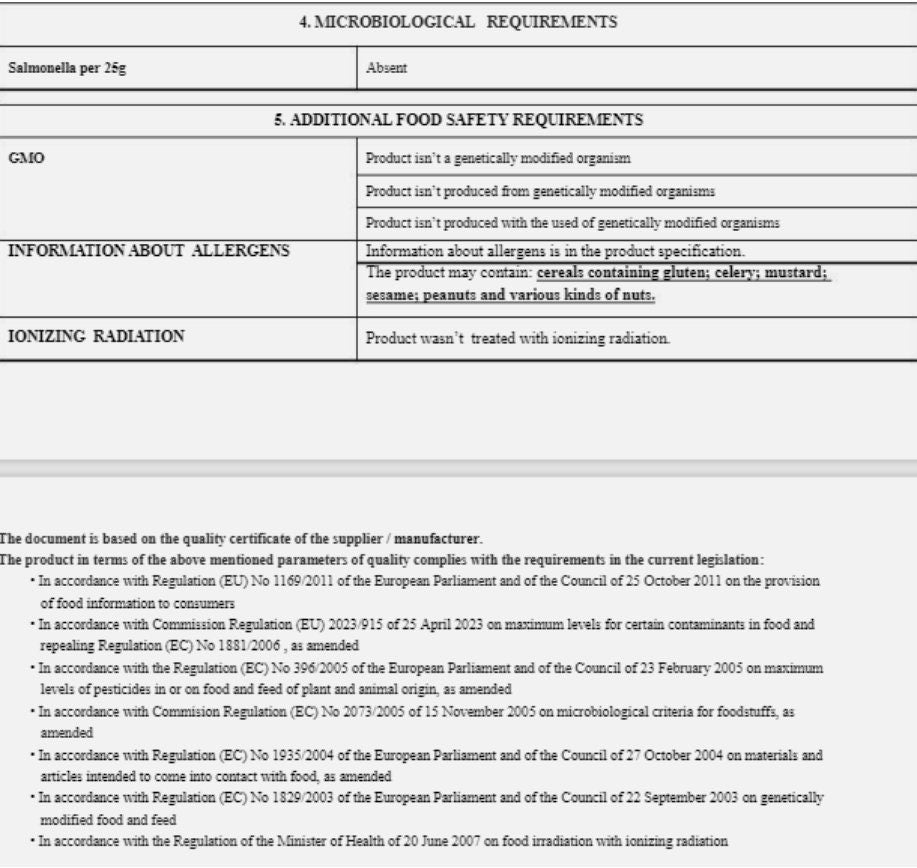Botanical remedies - Herbal Dispensary
Jasmine flower tea (Jasminum officinale - L.) Lab proven Quality and Purity
Jasmine flower tea (Jasminum officinale - L.) Lab proven Quality and Purity
Couldn't load pickup availability
Jasmine (Jasminum officinale - L.) also known as Jessamine, Poet's jasmine, Mistress of the Night, Jasmin. Jasmine tea has Bitter, Slightly Sweet taste, In China it is combined with green tea. Jasmine has long history of traditional use.
The name Jasmine derives from the Persian word Yasmin. In Persia and Arabia, Jasmine is called “Yasmin” which means “gift from God.” It is the national flower of Pakistan and on the day before a bride’s wedding, the young girl wears a garland of jasmine and roses around her neck as a sensual symbol of purity and passion. This same garland is often given out to pilgrims on their way to Mecca and when a child begins their first study of the Quran they are presented with bunches of roses and jasmine as a gesture of appreciation and good luck.
The flower is also sacred in India and the Himalayas. In India, jasmine is considered the essence of mystery and magic. Indian women use it to scent their hair and call it the “moonlight of the grove.” The scent is known for having profound spiritual effects on some people so the oil will be rubbed on the forehead to promote feelings of well-being, optimism, and happiness.
Jasmine is the sacred flower of Kama, the God of Love in India. It will be intertwined into bridal flowers at weddings, and woven into garlands for important guests at diplomatic functions. Historically, it is considered an aphrodisiac.
In the Roman Catholic Church, the flower is identified with the Virgin Mary, and is associated with May when the flower starts blooming. The flower also came to be a symbol of God’s love and is often depicted in religious paintings of the Italian Renaissance. Brides will often carry jasmine as a symbol of love and joy.
In China jasmine is a symbol of feminine sweetness, forever love, divine love, purity of the soul, compassion, empathy, and spiritual awakening.
Jasmine is one of the holy flowers of Buddhism, often depicted in images of the Buddha In Buddhism, it is a reminder to practice mindfulness and demonstrate purity of intentions through every word and action. Its scent can transport you to higher realms, supporting meditation and relaxation.
Suggested Use: It can be used for herbal tea 1-2 teaspoon to cup of boiling water, step for 5-15 minutes, strain and drink. Jasmine has also other uses, research beneficial uses of this herb or consult an Herbalist as to how this product can benefit you.
Contraindications: Considered safe when used as directed. Some people may experience allergic reactions. Use with caution if pregnant.
Typical Ingredients: 100% pure Botanical, absolutely nothing added, dried Jasmine flower.
Vegetarian/Vegan Suitability: Suitable for Vegetarians and Vegans
Wild grown/Organic Cultivated/Eco cultivated/Cultivated: Cultivated
Country of origin: China
Packaging: All products are hand packed in resalable paper bags to ensure maximum freshness
Quality assured
Share
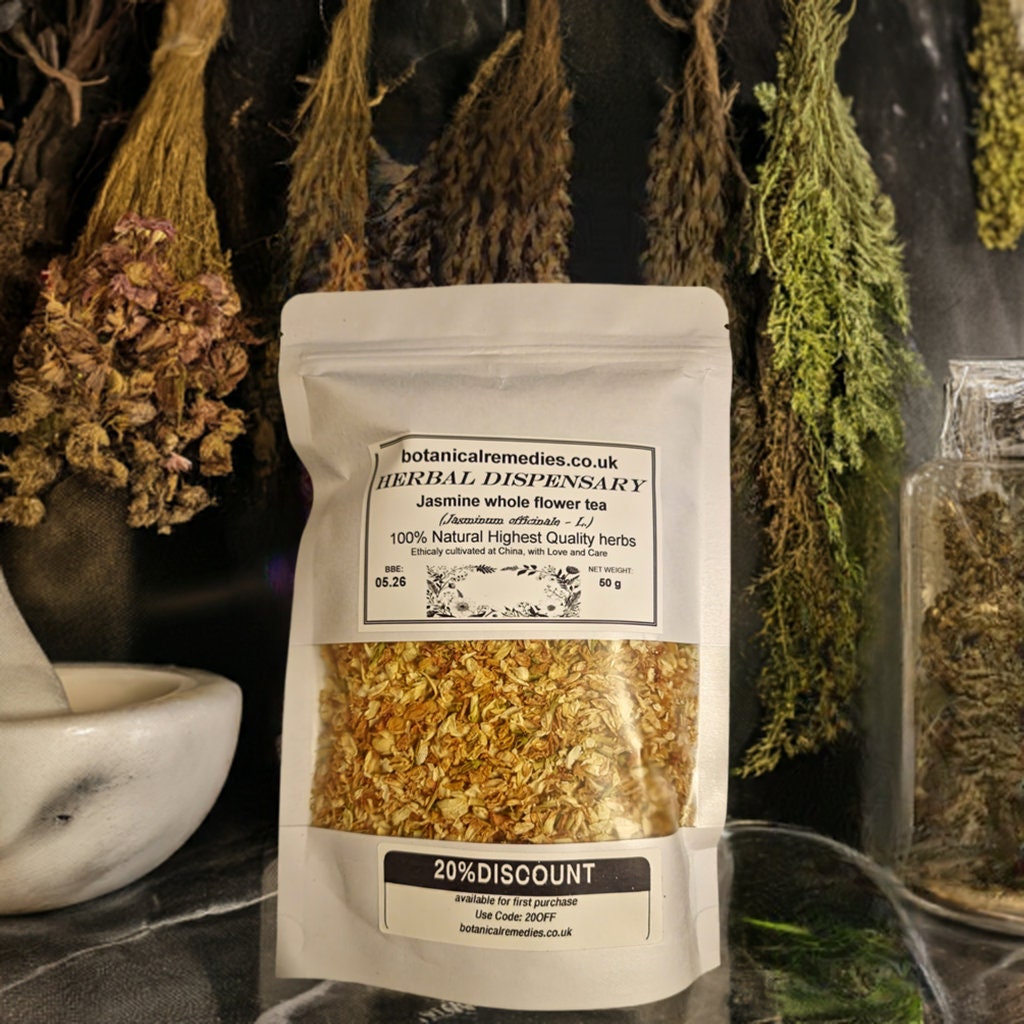
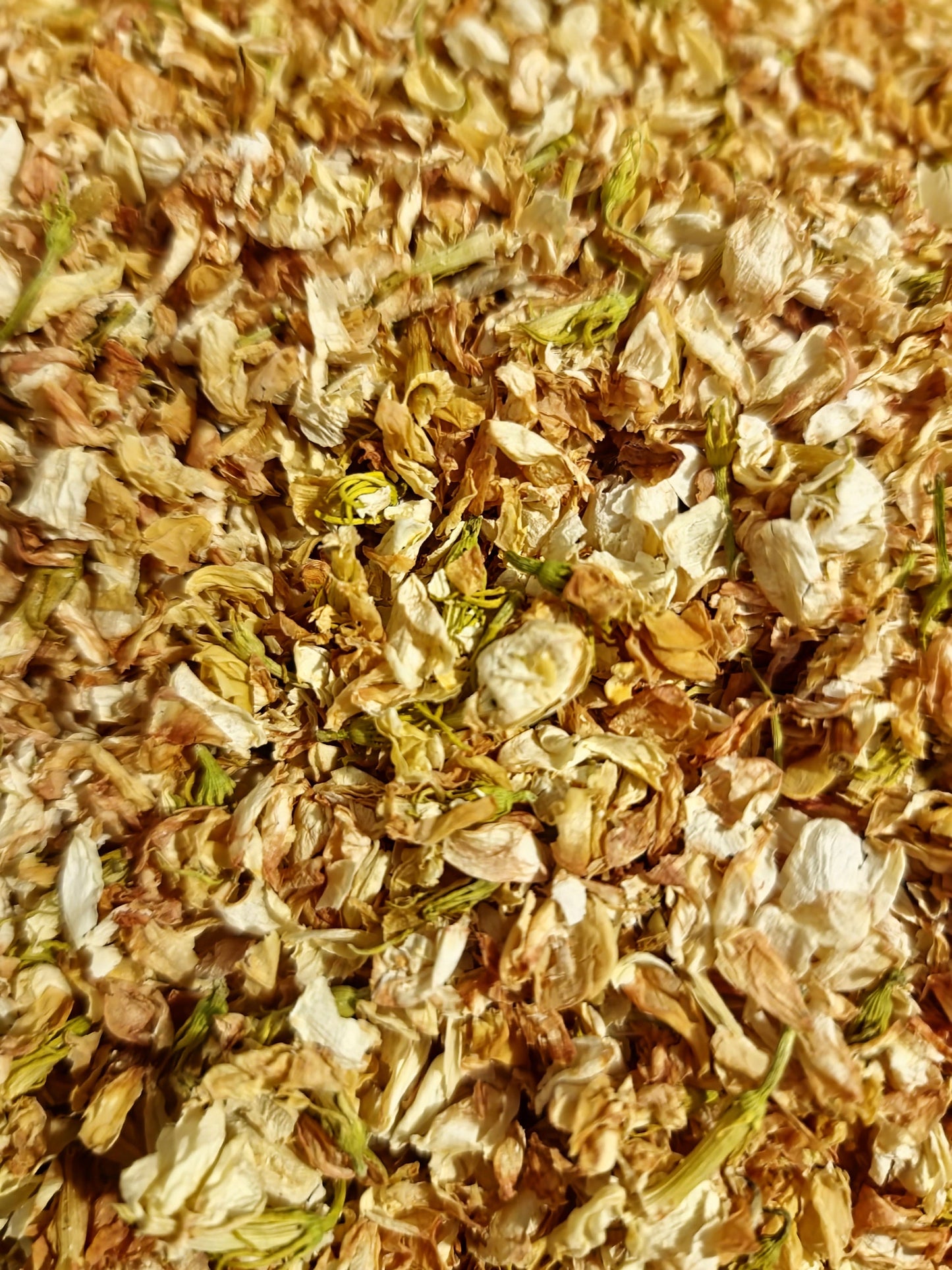

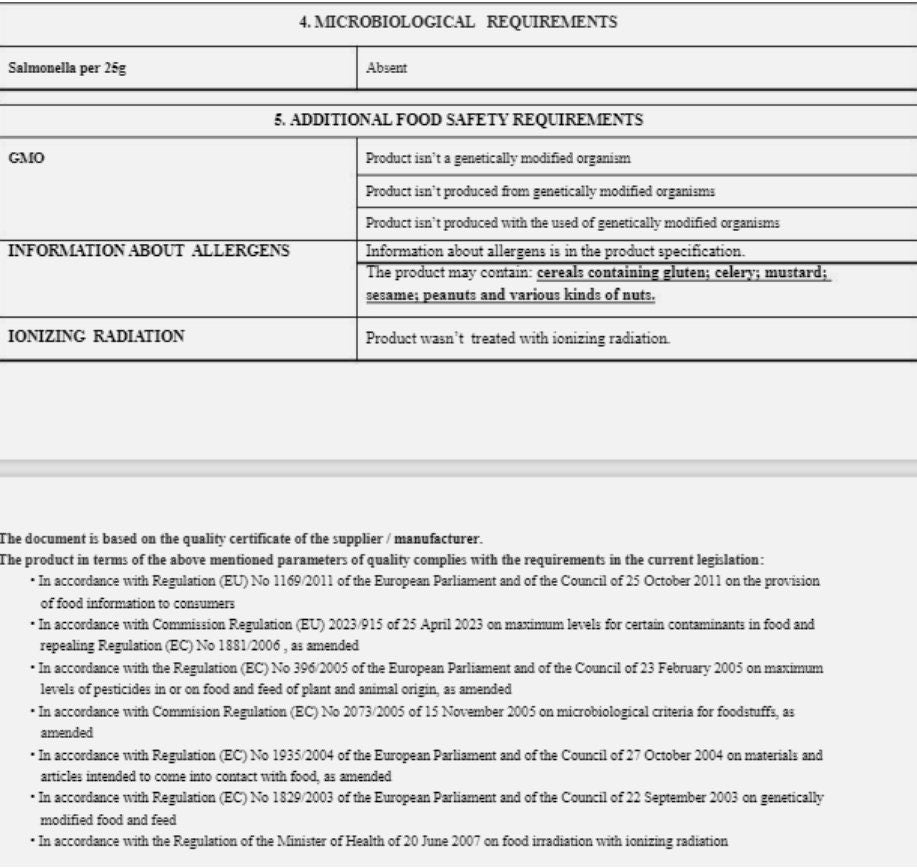
pleased with product would recommend
these smell amazing. i will be coming back for more soon
I love the Jasmin and Lily. Reasonable price and a good customer service.
I’d love if the company switched to non plastic packaging.
Perfect!
Great buy.I will order more herbs from them.













